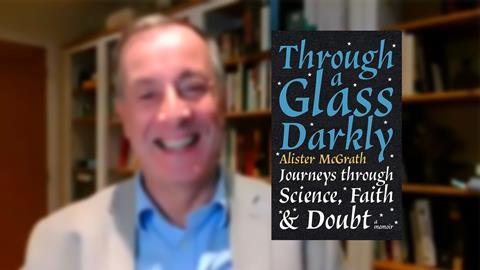Alister McGrath talks about his memoir ‘Through a Glass Darkly: Journeys Through Science, Faith & Doubt’ in the first part of a show recorded as a livestream listern Q&A edition of Unbelievable? in 2020, hosted by Justin and Lucy Brierley and Ruth Jackson.
+ Subscribe to The CS Lewis podcast: https://pod.link/1560959545
+ For more shows, free ebook and newsletter visit our new website
+ For our Premier Unbelievable? Live events
+ Support the podcast from the USA
+ Support the podcast from UK and rest of the world























